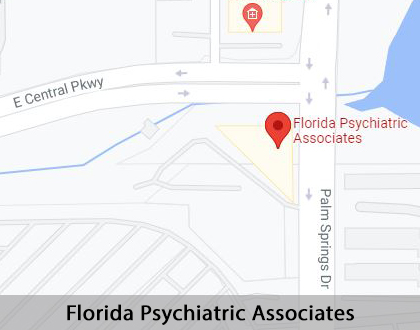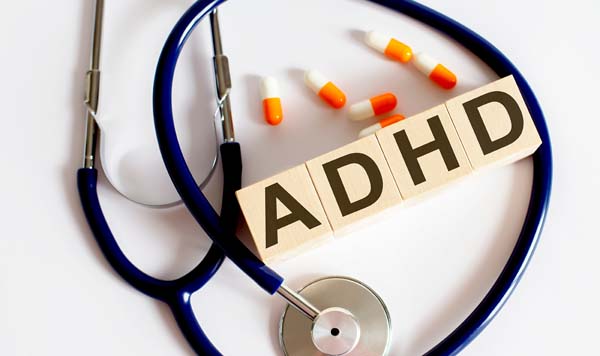Mood Disorder Treatment Altamonte Springs, FL
Mood disorders are more common than most think with many people seeking mood disorder treatment each year. While it can seem difficult to deal with a mood disorder on one’s own, mood disorders are treatable with the proper intervention.
Our team at Florida Psychiatric Associates in Altamonte Springs and the surrounding area treats various forms of mood disorders. If you or someone you love struggles with emotional or mental health, let us help. Call us at (407) 960-5633 to learn more or make an appointment.
What is a Mood Disorder
A mood disorder is an illness that causes chronic changes in mood and disrupts daily activities. Often, they arise for no apparent reason and are thought to be due to chemical imbalances in the brain. The brain is the most complex organ in the human body and can get sick just like any other organ. Mood disorders are medical illnesses like cancer or heart disease. Similarly, they can also be deadly and need treatment.
According to John Hopkins Medicine, the most common types are:
Major Depressive Disorder (MDD): MDD is characterized by at least two or more weeks of disinterest in usual activities, hopelessness, sadness, or extreme numbness. Some patients have been unable to get out of a chair or sleep excessively. MDD can be associated with thoughts of suicide. This depression can be very severe and recurrent. MDD can often cause a person to withdraw from daily life and isolate themselves from friends and family.
Dysthymia: This is a lower grade depression (not as severe as MDD) lasting for at least two years and characterized by depression and irritability. It is also known as persistent depressive disorder (PDD), where the depressed person has less downtime between depressive episodes. Those with this form of depression may also have episodes of MDD as well.
Bipolar Disorder: Formerly known as manic depression, it is characterized by a person having periods of mania followed by periods of intense depression. During the manic phase, the patient needs little sleep, is super productive, overly confident, talkative, and seemingly bursting with enthusiasm. They may spend money recklessly or engage in drugs or high-risk behaviors. The mania is often followed by a depression that can seem similar to PDD or MDD. During the depressive phase, the patient may sleep all day and have a powerful feeling of low self-worth, loss of interest, and an inability to focus on work or basic responsibilities. Severe forms of mania can involve the patient experiencing psychosis, which involves seeing or hearing things that are not there. Severe depressive episodes may cause the patient to contemplate suicide. There are three types of this mood disorder: bipolar 1, bipolar 2, and cyclothymic; each type varies in the length and intensity of manic and depressive episodes.
“Mood disorders are medical illnesses like cancer or heart disease that have the potential to be deadly and need treatment.”
When to Seek Professional Help
One confusing thing about mood disorders is that they appear to have no connection to a person's circumstances. Everything can be rolling a person's way, but they still feel empty inside and do not know why. It can appear these people are acting this way on purpose, but they are not. Chances are the person is thinking, “What the heck is wrong with me?” or “why can I just not snap out of it?” When dealing with mood disorders, the worst thing to do is to dismiss the sufferer as just crazy or a person with a bad attitude. Past beliefs that a depressed person needs to “buck up” are toxic. They can make the person feel so ashamed and full of self-doubt that they do not seek help until there is a crisis.
There is little the person can do to make their mood disorder go away without help from a professional. Mood disorders can negatively impact lives. People may lose jobs, develop chemical or process addictions, cause irreparable damage to relationships with loved ones, miss out on wonderful life events, or even lose their lives to suicide. The sooner a person struggling with a mood disorder gets help, the sooner they can get back their life. If a person believes they are suffering from a mood disorder, they should talk to a trusted loved one or friend about it. Maybe this person can start them on the road to good mental health.
However, it can be hard for a person to admit they need help. Mental illness affects tens of millions of Americans each year, according to estimates. Yet, according to these same estimates, only half of those who need mental health care get it. Though things are improving, the stigma against mental illness is still present and harmful. Unfortunately, this stigma increases the likelihood that the mood disorder will drive the patient to use alcohol and drugs to self-medicate. The patient can even reach a point where they are suicidal, a danger to themselves and others.
At this point, one must act quickly. If one cannot get their loved one to go willingly to seek emergency psychiatric help, a call to emergency services is a must. Explain the situation to the person on the phone to prepare the medical personnel for what they will be dealing with on arrival. Tell the 911 dispatcher how the person is acting. Is the person combative? Do they appear to be hallucinating? Are they acting agitated, aggressive, or threatening to harm themselves or someone else. It is important to note that if someone with a mood disorder becomes dangerous, it does not make them a bad person, just a sick person who did not get help before their mental health issue reached a crisis level.
“Mental illness affects 10s of millions of Americans each year, according to estimates. Yet, according to these same estimates, only half of those who need mental health care get it.”
Diagnosing Mood Disorders
Mood disorders are diagnosed through a psychiatric and physical examination. Doctors want to rule out physical issues such as hormone imbalances or thyroid problems that can exhibit symptoms similar to mood disorders. Substance abuse can also exhibit mood disorder symptoms. For example, methamphetamine use, especially after days of no sleep, can mimic bipolar disorder or schizophrenia symptoms. It is important to rule out drug use as a cause of the symptoms. The psychiatric evaluation should be thorough in getting a full picture of the symptoms to make an accurate diagnosis and develop the proper treatment plan.
In addition to bipolar disorder, major depressive disorder, and dysthymia, other mood disorders include seasonal affective disorder (SAD), a form of depression associated with fewer hours of daylight tending to occur at the same time of year, and premenstrual dysphoric disorder (PMDD), a more extreme form of premenstrual syndrome (PMS). Postpartum depression is a type of depression that affects women during and right after pregnancy. Mood disorders can be brought on by long-term stress, grief, or genetics.
Many find it surprising that anxiety disorders are not are not mood disorders. While anxiety does affect the mood, it is not directly related to mood. However, there are those with mood disorders who suffer from anxiety disorders as well. They must be cared for and medicated carefully. Certain anti-anxiety medications and sleep aids carry a risk of addiction in people prone to becoming substance dependent. Having a mood disorder is one factor that can increase a patient’s risk of becoming addicted.
“The psychiatric evaluation should be thorough in getting a full picture of your symptoms so the right diagnosis is made, leading to the right treatment plan.”
Check out what others are saying about our mental wellness on Yelp: Mood Disorder Treatment in Altamonte Springs, FL
How Are Mood Disorders Treated
Mood disorder treatment typically involves a combination of medication and psychotreatment. The psychiatrist will choose a drug that does not have any harmful interactions with the patient’s other medications. In most cases, the psychiatrist will start the patient on a low dose and increase it slowly. Often a couple of medications are required depending on the patient’s situation. In general, antidepressants are prescribed for depressive disorders and mood stabilizers for bipolar disorders.
Staying in close communication with the prescribing doctor is vital as the patient adjusts to the medication. The medication can help the patient feel better and more stable. Still, usually, there are maladaptive thoughts and behaviors the patient has developed while dealing with the mood disorder on their own. Psychotreatment can help the patient identify these maladaptive thoughts and behaviors and help them replace them with positive ones. Cognitive-behavioral treatment is one popular approach to do this.
It is also important to note that people treated with prescriptions for mood disorders should avoid drugs and alcohol. Consumption of these substances can interfere with the effectiveness of the medicine or be dangerous. Also, a healthy lifestyle containing exercise, a well-balanced diet, and proper sleep will further aid the management of the mood disorder.
“The medication can help the patient feel better and more stable, but usually, there are maladaptive behaviors the patient has developed while dealing with the mood disorder on their own.”
Questions Answered on This Page
Q. When should you seek help if you or someone else is suffering from a mood disorder?
Q. How are mood disorders diagnosed?
Q. How are mood disorders treated?
Q. How can the patient help their mood disorder treatment be more successful?
People Also Ask
Q. What are the possible causes and risk factors of depression?
Q. When should you seek help if you or someone else is suffering from a mood disorder?
What to Expect From Mood Disorder Treatment
Patients should remember they are not on trial and the medical professional is here to help them. Be honest about everything, including feelings, health habits, and substance abuse. There is nothing these professionals have not heard, and they are not judgemental. Professionals will usually give patients a survey to fill out at the evaluation. Full disclosure will lead to a more accurate diagnosis. The contents of this survey, as well as what information one shares with the psychiatrist, is confidential. Despite what one might believe, people with mood disorders are everywhere. There is nothing fundamentally wrong with these people. They are just sick and will get better with treatment.
Many patients are worried about going on medication. This is normal, as is asking a lot of questions. Patients are often given a pamphlet of information with the prescription describing things in detail, such as side effects and precautions to take. Patients should be honest with their doctor about how the medication works for them or any undesirable side effects. Sometimes, the first medication one tries is not always the right fit.
As with most antidepressants, the medication will take a few weeks to work, and the patient should give it time. If your goal is to limit the medication as much as possible, ask the psychiatrist about seeing a psychologist or someone trained in using proven treatment methods to help deal with the symptoms. As mentioned earlier, a combination of treatment and medication is often recommended to achieve the best results.
“Be honest about everything, including feelings, health habits, and substance abuse.”
Frequently Asked Questions
Q. Are there any blood tests or brain scans that can detect mood disorders?
A. For the most part, the answer to this question is no. However, research is being pursued. For example, the Indiana University School of Medicine is working on a blood test for diagnosing depression and bipolar that shows promise. According to the Westmead Institute for Medical Research, using MRI scanning produced research that showed a “key structure in the brain responds differently depending on whether the person has bipolar disorder or depression.”
Q. How can I tell if someone I know has a mood disorder?
A. It can be difficult to tell. Typical symptoms of mood disorders include irritability, mania, lack of enthusiasm or energy, appearing sad most of the time, concentration difficulties, and sudden weight changes. If you notice these symptoms come on suddenly, it is a sign of concern. They may have a mood disorder, a physical disorder presenting as a mood disorder, a drug addiction, or facing an enormous stressor in their life. Either way, they should seek immediate help.
Q. What should I do if I think a friend might have a mood disorder?
A. Talk to them about your concern and offer to help them. For example, if you have struggled with your mental health, this is a good time to share that information and talk about how you deal with it. Talking about your struggles will help the person feel more comfortable opening up to you.
Q. Are mood disorders inherited?
A. Mood disorders can run in families. However, environmental factors play a role. There is a strong genetic link with bipolar disorder. Therefore, those with the disorder were likely born with a predisposition for it.
Q. Is a mood disorder and personality disorder the same thing?
A. No, they are very different. Mood disorders affect a person’s emotional state, while personality disorders are maladaptive ways someone acts with other people. In addition, while mood disorders change, personality disorders remain constant.
Q. What causes mood disorders?
A. Mood disorders very rarely have a single cause. The brain is a complex organ, and there is still so little known about it. The current science points to mood disorders being caused by an imbalance in the brain’s chemicals caused by so many factors, including environment and genetics.
Change Is Possible – Call Us Today
Life isn’t always easy. Are you struggling? Are you looking for a highly personalized and professional approach tailored to your individual needs? Instead of waiting around, call us today. You should know that there is hope for a better tomorrow.
Definitions
Call Us Today
If you or a loved one is struggling with a mood disorder, our team is here to help. With the right combination of medication and other treatments, we will help you get back to the life you enjoy. Call us today 407-960-5633 to learn more or make an appointment.
Helpful Related Links
- American Psychiatric Association (APA). Mental Health Topics. 2021
About our business, license, and website security
- Florida Psychiatric Associates was established in 2003.
- We accept the following payment methods: American Express, Cash, Discover, MasterCard, and Visa
- We serve patients from the following counties: Seminole County, Volusia County and Orange County
- We serve patients from the following cities: Altamonte Springs, Lake Mary, Sanford, Deltona, Orange City, DeBary, Apopka, Maitland, Winter Park and Orlando
- FL (License #ME68974). View License Information and Specifics
- National Provider Identifier Database (1518910835). View NPI Registry Information
- Norton Safe Web. View Details
- Trend Micro Site Safety Center. View Details
Back to top of Mood Disorder Treatment







